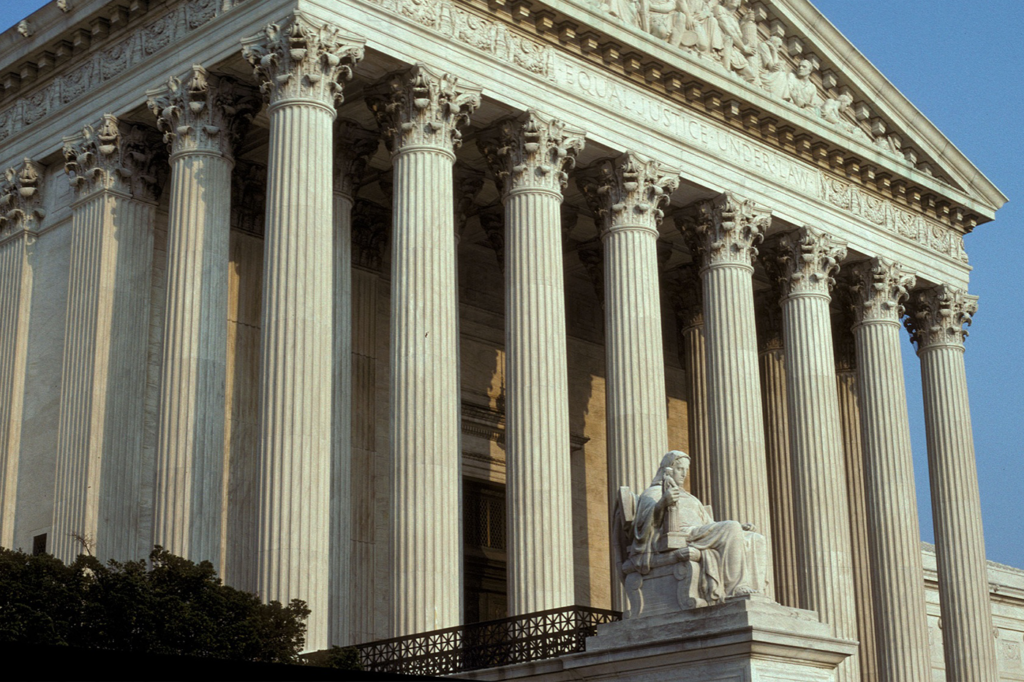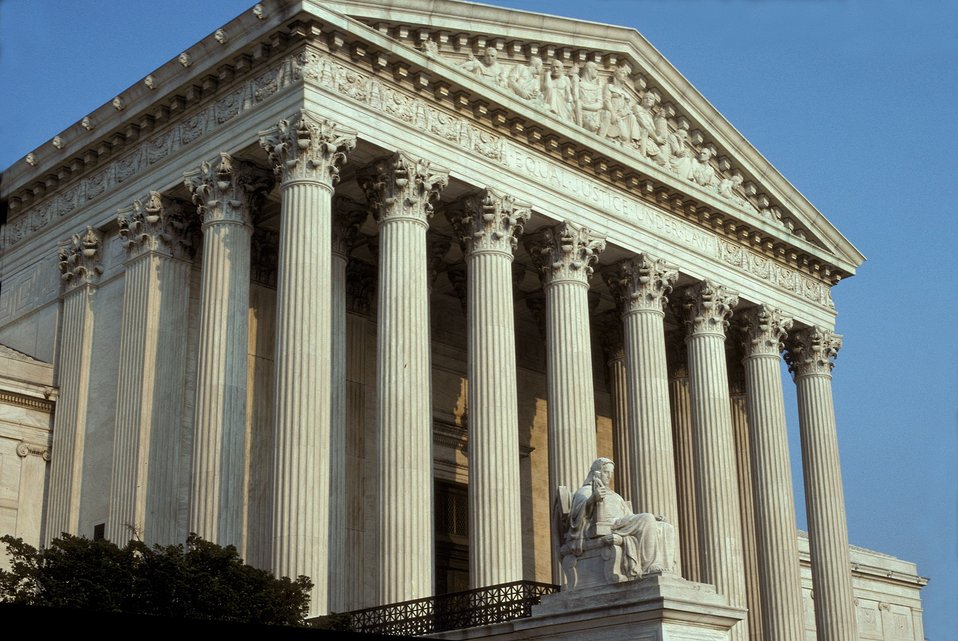The Myth of Technocratic Infallibility

We need good measures of economic activity, but we must not presume that these measurements are impervious to political pressures, as though they were no more than the product of certain methods.
Zombie vs. Bigfoot: The Mythology of American Monsters

In the Halloween death match between Bigfoot and zombie, the mask we choose may reveal our national mood.
The Age of Miracles and Misery Machines

We have more material comforts than kings and merchant princes of old, and technological progress has wrought what would once be considered miracles. Yet our culture makes every effort to promote dissatisfaction, for there is money to be made when people are unhappy or bored with what they have. In an age of miracles, our phones are becoming misery machines.
Piracy, Protests, and the Problem of China

America’s relations with China should proceed from the recognition that the Chinese government is lawless. China flouts the rule of law, not occasionally or incidentally but characteristically, because the government understands itself as the source of law and unconstrained by it. The problem of China reminds us of the deeper laws that all nations must respect and that determine whether or not our positive laws are legally just.
American Muslims Challenge Transgenderism—and Each Other

In amicus briefs to the Supreme Court in cases about sex, sexual orientation, and gender identity, some American Muslims argue from their beliefs while others push LGBT causes. This contrast provides non-Muslims a window into the teachings of Islam, and a ringside seat for intra-Muslim conflicts. At stake is whether truth claims or identity politics will prevail.
Coherence, Calvinball, and the Consistent Ethic of Life

A consistent life ethic (CLE) should consider the totality of an act: not simply the consequences, but also the intention, the object chosen, and the circumstances of the act. Charles Camosy deserves our respect for boldly declaring the case for CLE, but the devil remains in the details. Without agreement on those details, the consistent life ethic remains as unpredictable and random as Calvinball.
Against the “Feminine Essence”

Why do transgender activists so strongly reject the concept of autogynephilia, in which a man wants to be a woman because of an erotic attachment to the idea of himself as a woman? Shutting down scientific inquiry via political pressure impedes the objective advancement of science. Further, denying the validity of the autogynephilia theory can harm gender-dysphoric patients by denying them access to therapies that could help them overcome their specific problems.
Forgiving the Unforgivable: A Lesson in Love

I initially tried to explain forgiveness in terms of the psychological benefits to oneself, or even in terms of social harmony. But narratives of forgiveness as an outpouring of love correspond more to a different explanation of forgiveness: the desires of a heart that wants to expand. This is not a sentimental love; it is a love that seeks charity in truth, in justice, and in regarding our neighbor who has harmed us as a person deserving of the same merciful love that we ourselves have already been shown.
Norway’s Barnevernet and The Future of Parental Rights

Those who undermine the family attack the foundation of our societies and the source of great richness and diversity. The most generous interpretation of these attacks is that some of the policies, ostensibly aimed at protecting children, are well-intentioned, but misguided. Yet we must also be on guard for those for whom the temptation of power affords the opportunity to force their utopian vision on a future generation by sidelining parents and, ultimately, deconstructing the family.
The Rise and Fall (and Restoration) of Western Civilization

The restoration of Western civilization from its present travails requires getting the story right. Gregg’s Reason, Faith, and the Struggle for Western Civilization may be the most important recent work in this area, offering an important corrective to the other stories on offer.
The Problems With and Solutions to American Healthcare

When it comes to healthcare, economics tells us that we can do better. Distributive justice demands from us that we do better. A judicious combination of market forces, regulation, and transfers can provide us with more efficient healthcare for all, at a cheaper price.
Immigration: Winners and Losers?

Attempts to discover the effect of immigration on government budgets are highly susceptible to the decisions economists make about how to measure all those benefits and costs and how to account for the effects on the indigenous population. The quick answer to “What is the effect of immigration on government budgets?” is “It depends on how you measure it.”
Eberstadt on Eberstadt: Identity Politics’ Roots in Secularization

For all its insight into the link between identity politics and the sexual revolution, Mary Eberstadt’s recent book should be supplemented with the insights from her earlier work on secularism. As the history of philosophy indicates, identity loss is bound up with secularization, which gives the self the impossible task of constructing meaning from scratch. The only sure basis for personal identity is the will of God for me as his creature.
Joker and the Need for Family

Critics of Joker have missed the central message of the story: the descent into madness begins with the breakdown of the family and fatherhood.
Things Worth Dying For: The Nature of a Life Worth Living

It’s a good thing, a vital thing, to consider what we’re willing to die for. What do we love more than life? To even ask that question is an act of rebellion against a loveless age. And to answer it with conviction is to become a revolutionary; the kind of loving revolutionary who will survive and resist—and someday redeem a late modern West that can no longer imagine anything worth dying for, and thus, in the long run, anything worth living for. This essay is adapted from a lecture delivered on October 11, 2019, for the Constitutional Studies Program at the University of Notre Dame.
John Henry Newman: An Ecumenical Conversion

Newman is a model of stability amid hostilities that arise from without. But he is also a model for spiritual resistance to the suspicion and distrust that arise within one’s own ranks.
“Freedom,” “Choice,” and Physician-Assisted Suicide

The supporters of physician-assisted suicide are indefatigable in their quest to legalize the practice in the United States, and they are co-opting the conception of freedom, as understood by the prevailing political thought during the American founding, to support their cause.
A Catholic Republicanism?

At a time when many are calling for a radical re-thinking of American political life, Catholic social teaching suggests that republicanism is a promising and viable path forward, provided that it place civic freedom and civic virtue at the service of a more substantive view of the purpose of human life.
The Advertiser and the Witness

Rather than a marketplace of influencers, perhaps what we truly desire—what we need—is to live in the company of men and women who have actually tasted and seen and can testify. These men and women, witnesses all, direct us neither to themselves, nor to their products, but to something that exists independently of both. That’s the mission of the Thomistic Institute.
A New Lockean Manuscript and the Limits of Religious Toleration

The content of the new manuscript of Locke’s is not a view of toleration that we lost along the way and should hurry to recover for these troubled times. The text is actually a sobering reminder of the limits of a Lockean approach to religious toleration, which is based on a minimalistic understanding of religion.
Overruling the Visible: The Emperor’s New Gender

At stake in the Harris Funeral Homes case is whether the physical reality of sex will be deemed a mere stereotype—whether, for all public and practical purposes, everyone’s “identity” is arbitrarily and accidentally related to his or her body as ghost to machine.
A Supreme Court Decision Reflecting the Progressive Dismissal of Liberty

The constitutional framers knew that not everyone would always agree on how other people exercised their fundamental rights, such as property and religious liberty, which was precisely why those rights were enshrined in the Constitution. However, modern progressives have sought to undermine that constitutional consensus.
How Woke Capitalism Corrupts Business

The phenomenon of woke capitalism isn’t only about corporate America succumbing to progressive ideologies. It reflects deep confusion about the purpose of business and how commerce serves the common good.
Sex at the High Court: On the Redefinition of “Sex” in Civil Rights Law and Faulty Accounts of “Discrimination”

Activists are asking the Court to rewrite our nation’s civil rights laws in a way that would directly undermine one of their main purposes: protecting the equal rights of girls and women. Congress did not legislate such an outcome, and the Court should not usurp Congress’s authority by imposing such an extreme policy on the nation. Biology is not bigotry, and the Court should not conclude otherwise.




